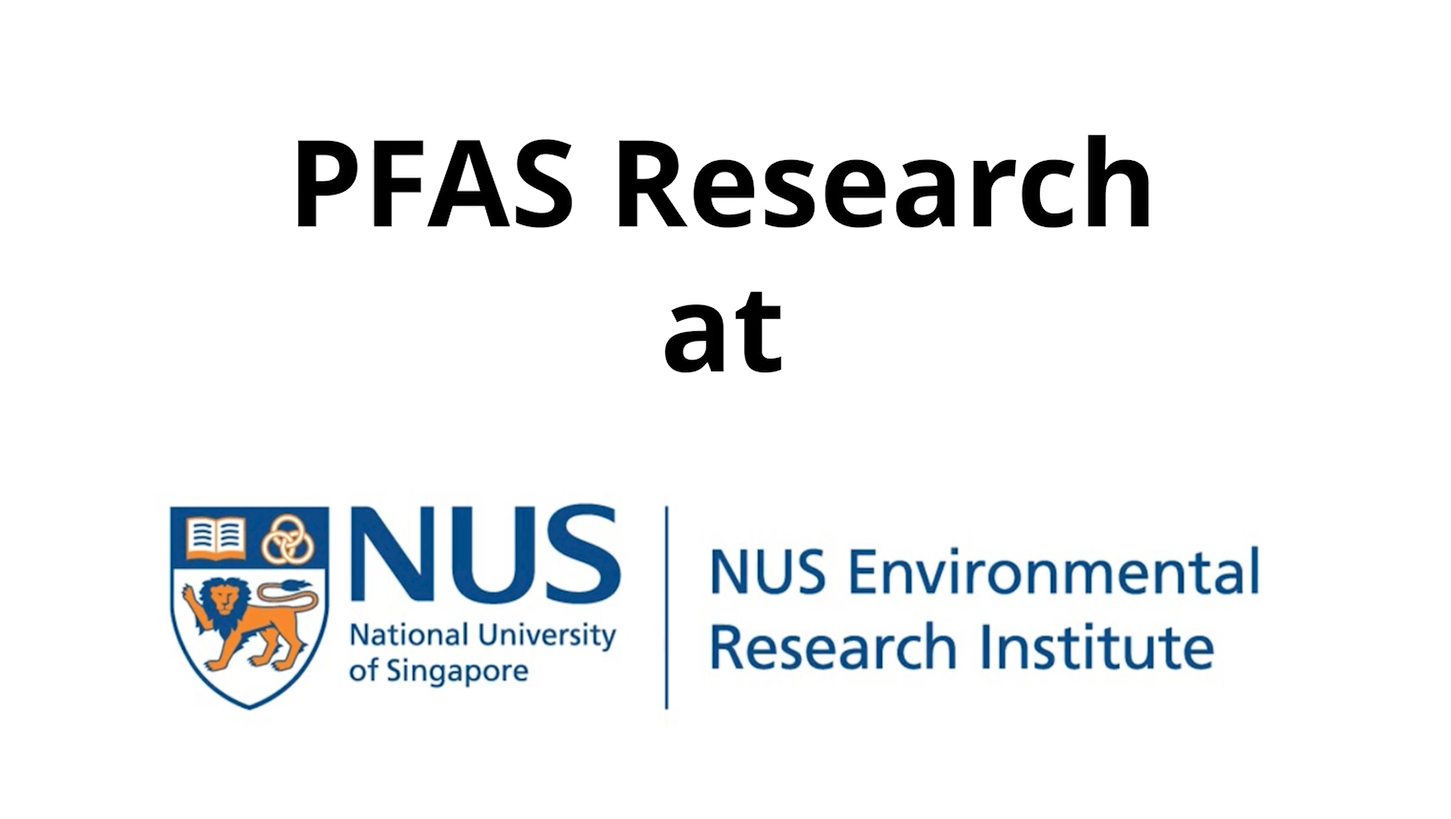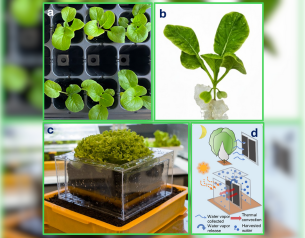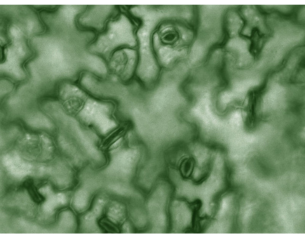Research Features

NERI is leading significant research efforts to address per- and polyfluoroalkyl substances (PFAS), a group of harmful pollutants that remain in the environment and have the tendency to build up in living organisms, from multiple perspectives. Check out the video for more details.

Intra-CREATE GelPonics: Growing the Future of Urban Farming through Collaboration
The Intra-CREATE GelPonics initiative has been a journey of scientific breakthroughs and intercultural teamwork led by Prof. Li Jun from NUS (NERI and NUS Biomedical Engineering) and Prof. He Yiliang from Shanghai Jiao Tong University (SJTU), addressing one of Singapore’s critical issues: food security.

Surface ligand-Engineered Nanoparticles for targeted Delivery to Stomata (SENDS)
A stomata-targeting nanocarrier platform that enhances plant resistance against pathogen infection through precise and sustainable means.

Solar-Powered 'Water Bank' Revolutionizes Irrigation for Urban Farms
A highly efficient and scalable solar-powered gel device designed by researchers at NERI harvests water from the air, slashing urban farm irrigation waste and boosting sustainability effortlessly.

Salt in Air: Beyond Sea Spray in Coastal City Pollution
Researchers at NUS Environmental Research Institute and NUS Civil and Environmental Engineering has improved the air pollutants characterization method by distinguishing airborne salts emitting from natural sea spray from human activities, especially for coastal cities.

Treating Wastewater powered by Sunlight - It is a Reality!
NUS team developed the revolutionary hybrid photoelectrodes with Carbon Quantum Dots (CQDs) and Titanium Dioxide (TiO2) that harness sunlight to degrade pollutants in the wastewater.

Sustainable Detoxification of Heavy Metals
In 2020, around 603 tonnes of waste were sent daily to Semakau Landfill, Singapore’s only landfill. In this research, the project team is developing a process to reduce the amount of waste earmarked for the landfill, and at the same time reconstruct valuable products from it.

Research on Climate & Water Quality
In preparedness for climate change effects on water, NERI has embarked on research to address “What, Who, When, Where & How” to manage water quality sustainably.

Research on Plastic Waste
We have been conducting studies to deepen understanding on the occurrence, fate and transportation of microplastics in the environment as well as its impact on aquatic and human health. To mitigate plastic pollution, from looking into innovative ideas, solutions.

Studying Dynamic Atmospheric Processes in Tropical Urban Environment
Air quality sciences have been major research foci of NERI. Following strong conviction of protecting our urban atmospheric environment in the tropics, NERI has been nurturing young scientists and engineers to harvest in-depth understandings of sources, transport...

Future of Farming – Microbiome Solutions for Green Environment
NERI adopts a holistic nature-based framework incorporating elements from food-energy-water nexus for sustainable farming practices. Blending concepts from microbial ecology, environmental and life sciences supported by robust data and AI platforms, NERI researchers are developing...

Food Waste to Resources
Increasing amounts of disposed food waste are posing environmental problems in megacities. In Singapore, food waste accounts for nearly 25% of solid waste disposed. This project aims to provide a sustainable alternative to managing food waste in Singapore. Other than reducing the amount...

How Climate Change Influence Algae Off-flavours

Biofuels from waste materials with wild type bacteria
CO2 was emitted globally in 2015. It is generally agreed that reduction of fossil fuel uses...

Bioretention systems for sustainable stormwater management
What is a bioretention system? A bioretention system is a vegetated depression also known as rain garden that captures stormwater runoff from urban areas, like roofs, driveways and walkways. Runoff that travels through the rain garden is briefly detained and cleansed...

Daphnia magna – Biological warning system for detection of pollutants in water bodies
History of water monitoring in 1986, a major environmental disaster occurred. In that year, fire in the Sandoz chemical plant in Basel, Switzerland, resulted in runoff that caused a massive mortality of wildlife in the river. This has sparked major concern over the Rhine River’s water quality...

NERI: Expanding horizons, Moving onwards with excellence
NERI plays a key role in establishing NUS as a leading global institute for interdisciplinary research, education and expertise in the environmental sciences and engineering Recently, NERI's efforts for environmental research has been featured in the International Innovation Magazine...

Of Plants, Microbes and Ecology
For more than 450 million years, plants and microbes have evolved and co-habited together. This relationship involves beneficial effects and harmful interactions, both significant and at the same time intriguing as a research perspective. These plant and microbial interactions affect the functioning...
